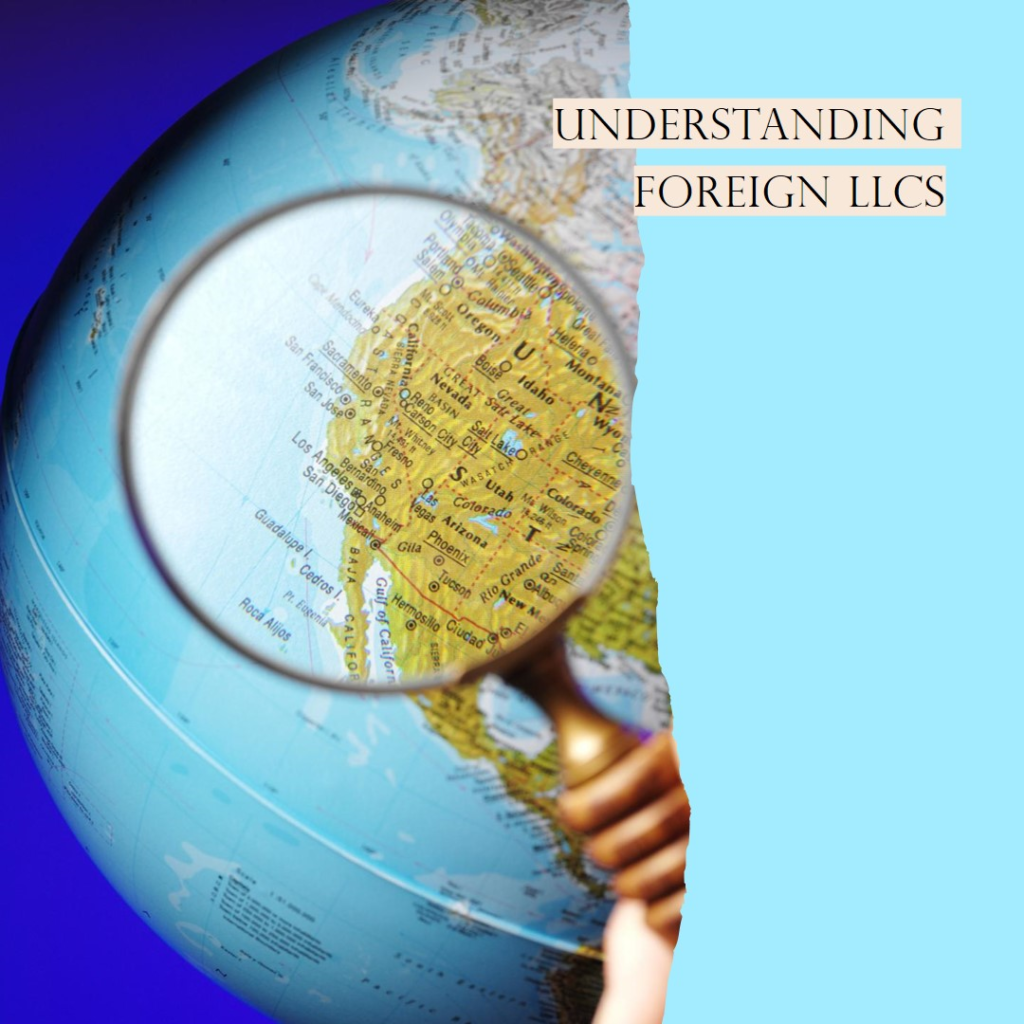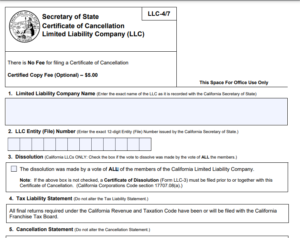What Are Foreign LLCs? Foreign LLCs refer to limited liability companies that operate in states other than the one where they were formed. When an LLC conducts business in any state besides its home state, it must register as an international LLC in that jurisdiction. By registering, LLCs comply with the regulations in each state […]

Understanding Foreign LLCs: A Comprehensive Guide
Blueprint
What Are Foreign LLCs?
Foreign LLCs refer to limited liability companies that operate in states other than the one where they were formed. When an LLC conducts business in any state besides its home state, it must register as an international LLC in that jurisdiction. By registering, LLCs comply with the regulations in each state while maintaining the legal protections offered by their original state of formation.
To simplify the process of registering an international LLC, companies often rely on professional services like Northwest Registered Agent and ZenBusiness, both of which offer reliable assistance in navigating the requirements.
When Do Foreign LLCs Need to Register?
LLCs must register when they engage in activities that qualify as transacting business in another state. These activities often include opening an office, employing staff, or having a physical business presence in the state. If a company regularly conducts business or has ongoing transactions in another state, it must file for foreign LLC registration.
However, not all activities require registration. Some common exceptions include:
- Litigating or defending lawsuits
- Holding internal meetings of managers or members
- Maintaining bank accounts
- Conducting occasional or one-off transactions
For businesses looking for additional support, companies like Swyft Filings offer streamlined filing services, helping you understand when and where registration is necessary.
Consequences for Foreign LLCs Not Registering
When global LLCs fail to register, they face significant consequences. Firstly, they may lose the right to bring lawsuits in the state’s courts. Secondly, they risk facing monetary penalties for conducting unregistered business activities. These penalties ensure that oversees LLCs cannot enjoy the benefits and protections of domestic LLCs without paying the necessary fees.
However, non-registration does not invalidate the company’s contracts or acts. LLCs can still defend lawsuits and maintain limited liability protection for members and managers. Once LLCs register and settle any penalties, they regain their full legal rights and protections in the state.
How Foreign LLCs Register to Transact Business
Foreign LLCs must follow specific steps to register and legally conduct business in a new state. The process begins with ensuring that the company’s name is distinguishable from other registered entities in the state. If the name is available, the LLC can proceed with filing the necessary paperwork.
Steps for Foreign LLC Registration:
- Choose a unique name: Foreign LLCs must ensure their name differs from other businesses in the state. If unavailable, the LLC may need to file under a fictitious name.
- File an application for authority: This application includes essential details such as the LLC’s name, date of formation, principal office address, and registered agent information. Each state has its own application form.
- Provide proof of good standing: Most states require foreign LLCs to submit a certificate of good standing from their home state. This certificate verifies that the LLC operates legally in its formation state. Services like Tailor Brands and Bizee can help manage the paperwork involved in these filings.
- Appoint a registered agent: Foreign LLCs must designate a registered agent within the new state. The agent receives legal documents on behalf of the LLC. Many businesses choose Registered Agents Inc to handle these requirements across multiple states.
After completing these steps, foreign LLCs receive a certificate of authority, permitting them to conduct business in that state.

Ongoing Compliance for Foreign LLCs
Once registered, foreign LLCs must adhere to ongoing compliance requirements. These obligations include filing annual reports, paying state franchise taxes, and keeping their registered agent information up to date.
Failing to comply with these requirements can result in fines, loss of good standing, or even revocation of the LLC’s authority to operate. By maintaining compliance, foreign LLCs protect their ability to conduct business and avoid unnecessary legal issues.
Amending Foreign LLC Registration Information
LLCs must update their registration if their business details change. For instance, if the LLC changes its name, alters its registered agent, or experiences any internal reorganization, it must file an amendment with the state. This ensures that the LLC’s records remain accurate and up-to-date.
Timely amendments prevent potential legal complications and help foreign LLCs maintain good standing.
Canceling Foreign LLC Registration
When international LLCs stop operating in a state, they should cancel their registration. Failing to do so could result in ongoing tax liabilities or other obligations. To cancel, oversees LLCs must file a certificate of cancellation with the state, formally ending their business activities there.
In some cases, if the LLC dissolves in its home state, it must withdraw from all foreign states as well. Canceling registration in a timely manner saves foreign LLCs from unnecessary fees and reporting requirements.
Revoking Authority for Foreign LLCs
A state may revoke the authority of oversees LLCs if they fail to comply with the law. Common reasons for revocation include:
- Not paying required fees or taxes
- Failing to file annual reports
- Not maintaining a registered agent
Foreign LLCs can apply for reinstatement within a certain timeframe, depending on state regulations. However, they must resolve any outstanding issues before reinstatement can occur. Ensuring ongoing compliance helps foreign LLCs avoid the risk of revocation and maintain their business operations.
Are you ready to begin your journey of acquiring your international LLC? Here is a comprehensive video on the type of loopholes to avoid:
Conclusion
LLCs offer businesses the ability to expand their operations across state lines while maintaining the legal structure and protection of their home state. By registering as LLCs, companies ensure they remain compliant with state regulations, avoid penalties, and secure their rights to operate in new markets.
Trusted services like Northwest Registered Agent, ZenBusiness, and Registered Agents Inc make the registration process seamless and efficient. Understanding the steps for registration and the ongoing compliance requirements allows foreign LLCs to focus on growth and business success.



